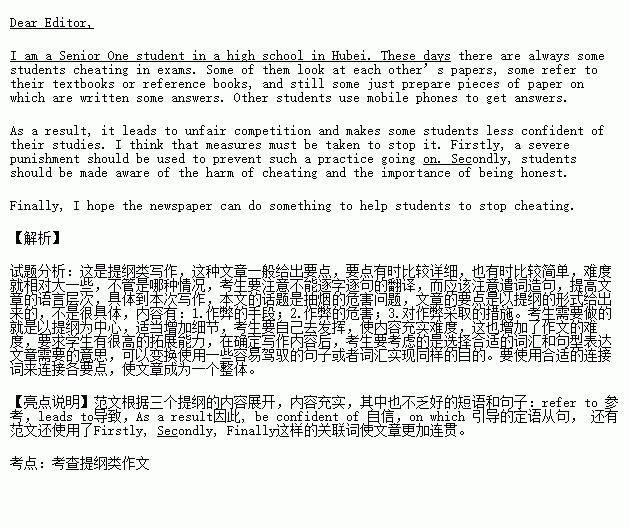题目内容
学生在考试中作弊现象时有发生。假定你是高一学生李英,请根据下列要点,给某英语报社投稿反映这种现象,并呼吁广大学生停止作弊。
1.作弊的手段 2.作弊的危害 3.对作弊采取的措施
注意:1. 词数120左右;
2.文章的开头已经给出,不计入总词数;
3.可以适当增加细节,以使行文连贯。
4. 参考词汇:竞争competition 惩罚punishment
Dear Editor,
I am a Senior One student in a high school in Hubei. These days
_________________________________________________________________________
_________________________________________________________________________
_________________________________________________________________________
Yours
Li Ying
练习册系列答案
 阅读快车系列答案
阅读快车系列答案
相关题目

